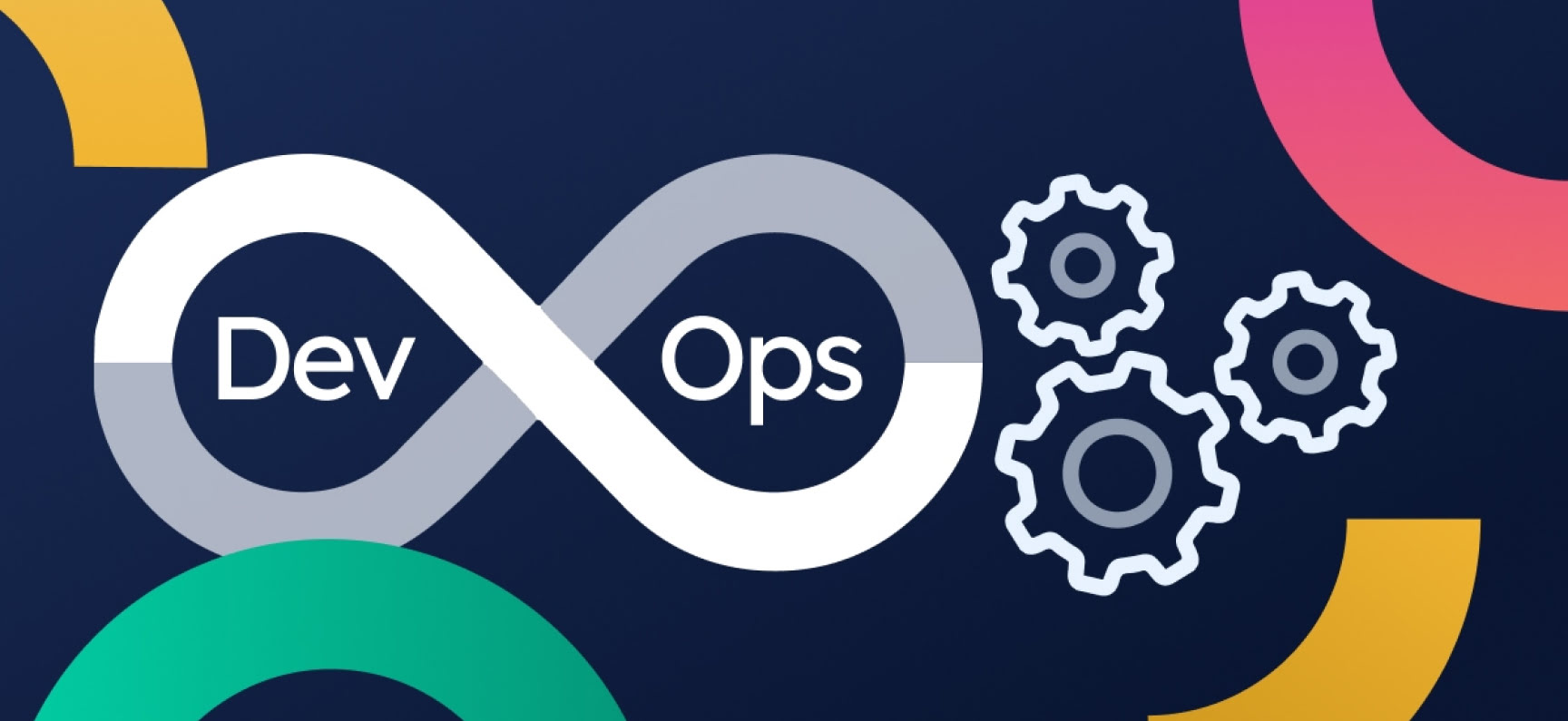In the world of fast-moving tech, speed alone isn’t enough – you need precision, resilience, and the ability to pivot without missing a beat. That’s exactly where DevOps comes in. It’s not just a buzzword or a trendy framework – it’s a proven methodology that’s transforming how businesses build, deploy, and scale software.
DevOps isn’t just about making IT run smoother – it’s about unlocking growth across your entire business. When your development and operations teams work in sync, you gain the ability to innovate faster, respond to customer needs in real time, and scale without stumbling. The benefits of using DevOps go beyond code – they fuel a culture of agility, accountability, and continuous improvement. Whether you're launching a new product, expanding your digital footprint, or tightening up internal processes, integrated development lays the groundwork for smarter, faster, and more sustainable business growth.
From reducing time-to-market to improving collaboration, the key benefits of DevOps for business touch every corner of an organization. And if you're still clinging to outdated, siloed workflows, it’s time to rethink. Why are the companies thriving today? They’re not just moving fast – they’re moving smart.
What DevOps Really Brings to the Table
At its core, DevOps is about tearing down the wall between development and operations. It brings teams together under one umbrella, emphasizing collaboration, automation, and constant feedback. The result? A system where software gets delivered faster, with fewer errors, and with far more flexibility.
But the main advantages of using DevOps go beyond deployment speed. You’re looking at stronger security, smoother scaling, better customer experiences, and serious cost savings. Whether you're a startup or an enterprise giant, integrated development gives your business the horsepower it needs to compete and win.
And when you take things a step further, advanced DevOps benefits for business include intelligent monitoring, predictive analytics, self-healing infrastructure, and deep integration with CI/CD pipelines. In other words, integrated development doesn’t just help you catch up – it helps you leap ahead.

Why Businesses Are Shifting Toward DevOps
Today’s digital landscape doesn’t wait. Customers expect rapid updates, zero downtime, and seamless experiences. Traditional workflows can’t keep up. That’s why more and more companies are embracing integrated development – not just to survive, but to lead.
From global retailers to fintech disruptors, organizations are recognizing the business advantages of DevOps: faster innovation, tighter feedback loops, and increased agility. And when done right, the benefits of DevOps transformation ripple far beyond IT – they shape how your entire company works.

How DevOps Transforms the Way Companies Work
For companies that don’t have the in-house capacity to build or manage a full, integrated development pipeline, the benefits of managed DevOps services are a game-changer. You get expert-level implementation, ongoing support, and best-in-class tools – without stretching your internal team thin. It’s the fastest path to getting DevOps right, without the growing pains.
From Idea to Release – Faster Than Ever
In today’s hyper-competitive landscape, speed isn’t a luxury – it’s survival. integrated development slashes the time it takes to move from concept to customer. By automating approvals, tightening feedback loops, and eliminating red tape, your team can ship updates, features, and bug fixes in a fraction of the time. No more waiting days (or weeks) for deployments.
No more last-minute scrambles to meet deadlines. With integrated development, speed becomes your superpower. This is one of the main benefits of using DevOps in software engineering – you’re not just releasing faster, you’re gaining momentum and outpacing competitors.
Automation That Cuts Waste and Frees Up Time
DevOps puts repetitive tasks on autopilot – from testing and deployments to infrastructure provisioning. The business benefit of automation in DevOps is huge: reduced errors, consistent processes, and teams who can focus on innovation instead of maintenance.
Simply put, business benefits of DevOps automation include higher productivity and lower operational costs.
Tighter Code Through Continuous Integration
With continuous integration (CI), developers can merge code regularly, triggering automatic tests and builds. This keeps code clean, catches bugs early, and ensures smoother rollouts.
The benefits of continuous integration in DevOps include:
- Fewer bugs in production
- Shorter feedback cycles
- Stronger product quality
CI ensures quality isn’t sacrificed for speed – it's baked into every step of the process.
Containers That Keep Everything Running Smoothly
Continuous integration (CI) is one of the cornerstones of a successful integrated development pipeline. It allows developers to push small, incremental changes frequently – and every change triggers automatic testing and validation. That means bugs are caught early, not after they’ve landed in production.
The benefits of containerization in DevOps include scalability, portability, and improved resource utilization. Add container orchestration with tools like Kubernetes, and now you’ve got self-healing, auto-scaling infrastructure that keeps things humming, whether you’re supporting 10 users or 10 million.
Breaking Down Silos Between Teams
DevOps is more than tech – it’s cultural transformation. It knocks down the walls between development, QA, and operations. Instead of tossing code over the fence, everyone works together, from planning to deployment.
This shift in mindset leads to better communication, faster problem-solving, and teams that actually enjoy working together. These soft gains have a big impact, making this one of the underestimated but critical pros of DevOps.
Fewer Outages, Smoother Deployments
Downtime is costly – plain and simple. Integrated development practices like automated testing, continuous monitoring, canary deployments, and infrastructure as code help reduce human error and make your releases safer. When things go wrong (and they will), integrated development ensures you catch the issue early, roll back quickly, and learn from it. That makes your business safer, more stable, and far more resilient – even when traffic spikes or systems are under pressure.
Room to Grow – Without Breaking Things
Scaling a business is tough, but scaling without breaking stuff? That’s where DevOps shines. With infrastructure automation, modular architectures, and robust pipelines, you can grow with confidence. One of the advanced DevOps benefits for business is the ability to expand your infrastructure or user base without the usual growing pains. Whether you're scaling up a product launch or supporting new global users, integrated development makes sure your systems – and your teams – can handle it.
DevOps That Pays Off – Literally
Let’s talk money. The financial benefits of DevOps implementation are the real deal. When you get to market faster, you start earning revenue sooner. Fewer bugs mean less time fixing problems, which keeps costs down. And when your team’s happy and productive, turnover drops and efficiency climbs.
According to statistics from the 2023 State of DevOps Report, companies with mature integrated development practices deploy code 46x more frequently and recover from failures 96x faster than those without. That’s not just impressive – it’s profitable.
Security That Moves at the Speed of DevOps
Traditionally, security was a blocker in the release cycle. But with DevSecOps, security is built into every stage of development. Instead of being bolted on at the end, it’s automated, continuous, and adaptive.
You get:
- Automated compliance checks
- Real-time vulnerability scanning
- Integrated audit trails
DevOps keeps your business safe while still moving at full speed – a win-win.
Making Legacy Systems Play Nice
Modernizing IT environments is tough, but integrated development makes it doable. Through strategic automation and smart tooling, even older systems can integrate into modern pipelines.
The benefits of DevOps integration include better resource use, less tech debt, and a path forward without the need for a full rip-and-replace.
Why DevOps Isn’t Just a Trend – It’s a Business Strategy
Let’s be real – DevOps isn’t just another tech fad. It’s not something you try for a quarter, then toss aside. It's a strategic move that aligns your tech teams with your business goals in a way few other methodologies can. What makes it stick? Simple: integrated development delivers measurable, sustainable business results. Companies that fully embrace integrated development aren’t just releasing code faster – they’re evolving into high-performing, customer-focused machines.
In fact, the benefits of implementing DevOps in an IT organization go way beyond the dev team. They touch product, support, operations, and even how leadership makes decisions. It’s about building a business that thrives under pressure, adapts to market shifts, and always delivers value, without chaos.

DevOps vs. Traditional IT: The Business Perspective
If you’re still running IT the old-fashioned way – manual handoffs, siloed teams, and release cycles that drag on for weeks or even months – you’re not just behind. You’re putting your business at risk. Today’s customers expect more. They want constant updates, seamless digital experiences, and fast responses when things go wrong. And your competitors? They’re not waiting around. They're adopting integrated development to move faster, ship smarter, and adapt on the fly.
Here’s how DevOps stacks up against traditional IT approaches, from a business lens:
| Aspect | Traditional IT | DevOps-Driven Organization |
| Release Frequency | Quarterly or monthly | Multiple times per day |
| Time to Market | Slow, with long approval cycles | Fast, streamlined from idea to deployment |
| Team Collaboration | Siloed departments (Dev vs Ops vs QA) | Unified, cross-functional teams |
| Error Rates | High due to manual processes | Reduced through automated testing and CI/CD |
| Incident Response | Reactive – fix after failure | Proactive – monitoring, rollback, recovery baked in |
| Scalability | Difficult and expensive | Elastic, automated, and cost-efficient |
| Security | Tacked on at the end | Integrated throughout (DevSecOps) |
| Innovation Potential | Limited – more time on maintenance | High – more time spent on new features and improvements |
| Customer Experience | Inconsistent due to slow updates | Responsive and continuous improvement |
| Business Alignment | IT seen as a cost center | IT becomes a strategic growth driver |
In short, integrated development helps IT evolve from a reactive support function into a proactive business enabler. The benefits of integrated development transformation aren’t just technical – they’re operational, cultural, and financial. If you’re aiming for growth, agility, and resilience, integrated development shouldn’t be treated as an optional upgrade. It should be the engine behind your entire strategy.
Why Leading Businesses Choose Artjoker as Their DevOps Partner
At Artjoker, DevOps isn’t just a service – it’s in our DNA. We don’t hand you a cookie-cutter solution and walk away. We collaborate closely with your team to design, implement, and fine-tune a integrated development strategy tailored to your unique goals and infrastructure.

Partnering with Artjoker means you’ll:
- Move faster without sacrificing quality
- Scale your infrastructure without added complexity
- Cut operational costs while increasing reliability
- Eliminate bottlenecks through smart automation
- Gain full visibility across your integrated development lifecycle
- Ship updates and features more frequently
- Improve developer productivity and team morale
- Reduce downtime and recover from failures quickly
- Get expert guidance every step of the way
- Build a DevOps culture your team actually wants to be part of
That’s why so many companies trust us to lead their transformation – and why your journey should start with Artjoker.
Conclusion
DevOps isn’t just about tools or pipelines – it’s about creating a business that’s agile, resilient, and ready for whatever comes next. When done right, integrated development empowers your team to move with confidence, deliver with speed, and adapt to change without missing a beat.
Whether you're chasing faster releases, cleaner code, tighter security, or just less chaos between departments, integrated development is the engine that drives it all. But like any powerful tool, you need the right hands to put it to work.
At Artjoker, we’re here to make sure your integrated development transformation is more than just functional – it’s a force multiplier for your business. From strategy to execution, we’ll help you create systems that grow with you, not against you.
Ready to move faster, cut costs, and build smarter? Let’s create a DevOps strategy that fits your business and fuels your growth. Contact us today and let’s get to work.
Similar articles
View allyour business
together
- PROJECT INQUIRIES info@artjoker.net
- CALL US +1 213 423 05 84
contact us:










